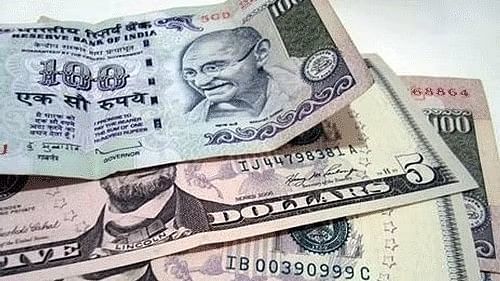
Representative image of Indian Rupee and US Dollar.
Credit: PTI File Photo
A gauge showing the Indian rupee’s value against its key trading partners rose to the highest in more than six years in July, even as the currency hit a new lifetime low against the dollar.
The index measuring the rupee’s value against a weighted basket of the country’s 40 trading partners, adjusted for inflation, rose to 107.33 — the highest since December 2017, according to the Reserve Bank of India data.
The real-effective-exchange rate is a popular metric of how a currency is valued in relation to its trading partners. A reading above 100 indicates overvaluation. The rupee has mostly stayed above that level in the past decade.
It has underperformed Asian peers this month amid a yen trade unwinding and outflows from stocks. The central bank’s strategy to allow a weaker rupee may be aimed at correcting some REER overvaluation to boost the country’s trade competitiveness.
RBI’s intervention in the foreign exchange market has helped limit rupee overvaluation, said Gaura Sen Gupta, chief economist at IDFC FIRST Bank. “The extent of rupee overvaluation on REER metric has moderated in August.”
The rupee is hovering near 84 to a dollar, and is down 0.9% so far this year, but on a REER basis, it’s up 3.6% in seven months to July.
Higher inflation in India compared to key trading partners such as China may also be causing the REER to remain elevated, according to Australia and New Zealand Banking Group India economist Dhiraj Nim.